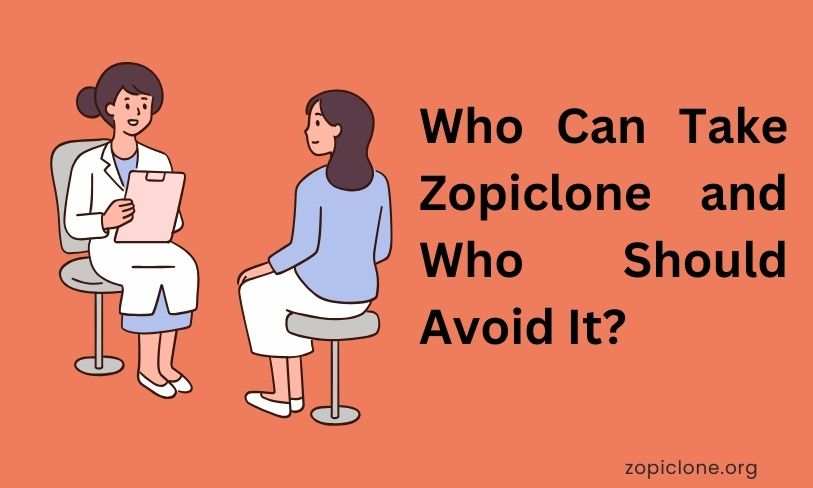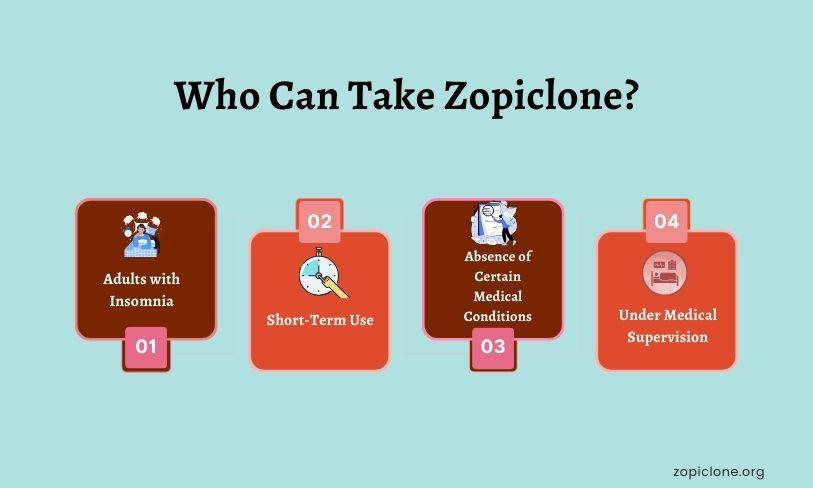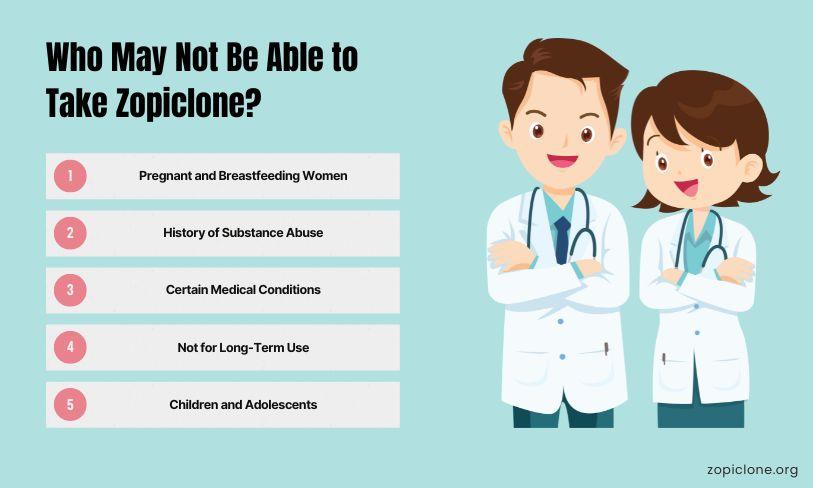
Who Can Take Zopiclone and Who Should Avoid It:- Zopiclone is a medication primarily used for the short-term treatment of insomnia in adults. It belongs to a class of drugs known as non-benzodiazepine hypnotics, which work by enhancing the effect of a neurotransmitter called gamma-aminobutyric acid (GABA) in the brain. This action helps to calm the brain activity, making it easier for individuals to fall asleep and stay asleep.
Contents
Effects and Benefits of Zopiclone
- Sleep Induction: Zopiclone helps individuals who struggle to initiate sleep by reducing the time it takes to fall asleep after going to bed.
- Sleep Maintenance: It improves sleep continuity, reducing the frequency of waking up during the night, which results in a longer duration of uninterrupted sleep.
- Quality of Sleep: Users often report improved sleep quality, feeling more refreshed upon waking, and experiencing less daytime sleepiness.
Who Can Take Zopiclone?
Zopiclone is generally suitable for the following groups:
- Adults with Insomnia: Zopiclone is primarily intended for adults who experience difficulty falling asleep or staying asleep. It helps initiate and maintain sleep, which is crucial for managing insomnia.
- Short-Term Use: It is recommended for short-term use, typically up to 2 to 4 weeks. Prolonged use beyond this period is discouraged due to the potential for tolerance and dependence .
- Absence of Certain Medical Conditions: Zopiclone can be safely used by individuals without severe respiratory issues, liver disease, or myasthenia gravis. These conditions may increase the risk of adverse effects or complications.
- Under Medical Supervision: It should only be taken under the supervision and prescription of a qualified healthcare provider. This ensures appropriate dosage, monitoring of side effects, and management of any potential interactions with other medications.

Who May Not Be Able to Take Zopiclone?
Despite its effectiveness, there are certain groups who should avoid or use zopiclone cautiously:
- Pregnant and Breastfeeding Women: Zopiclone is generally not recommended during pregnancy or while breastfeeding. It can pass through breast milk and may affect the infant. Pregnant women should explore alternative non-pharmacological treatments or safer medications under medical guidance.
- History of Substance Abuse: Individuals with a history of substance abuse or addiction may be at higher risk of developing dependence on zopiclone. Alternative therapies or closely monitored use may be considered in such cases.
- Certain Medical Conditions: People with severe respiratory issues (such as sleep apnea), liver disease, or myasthenia gravis should avoid zopiclone due to potential exacerbation of these conditions or decreased drug clearance.
- Elderly Patients: While zopiclone can be prescribed to elderly individuals, caution is advised due to the increased sensitivity to its effects and higher risk of adverse reactions. Lower doses are often recommended to minimize these risks.
- Not for Long-Term Use: Long-term use of zopiclone beyond 4 weeks is discouraged as it can lead to tolerance, meaning higher doses are needed to achieve the same effect. This increases the risk of dependence and withdrawal symptoms upon discontinuation.
- Children and Adolescents: Zopiclone is typically not recommended for individuals under 18 years old due to insufficient data on its safety and efficacy in this age group. Non-pharmacological treatments and behavioral therapies are preferred for managing insomnia in children.

Conclusion
Making an informed decision about using zopiclone involves understanding its benefits and potential risks based on individual health conditions and circumstances. Consulting with a healthcare professional is essential to determine whether zopiclone is appropriate for managing your insomnia. They can provide personalized advice, taking into account your medical history, current medications, and overall health status.
By adhering to medical guidance and considering alternative treatments when necessary, you can effectively manage insomnia while minimizing potential risks associated with zopiclone use.
Author Details




Medical content by qualified psychiatrists
Our editorial policy

Zopiclone precautions Read our potential abuse notice

Looking for a seller? Locate the best Zopiclone vendor






